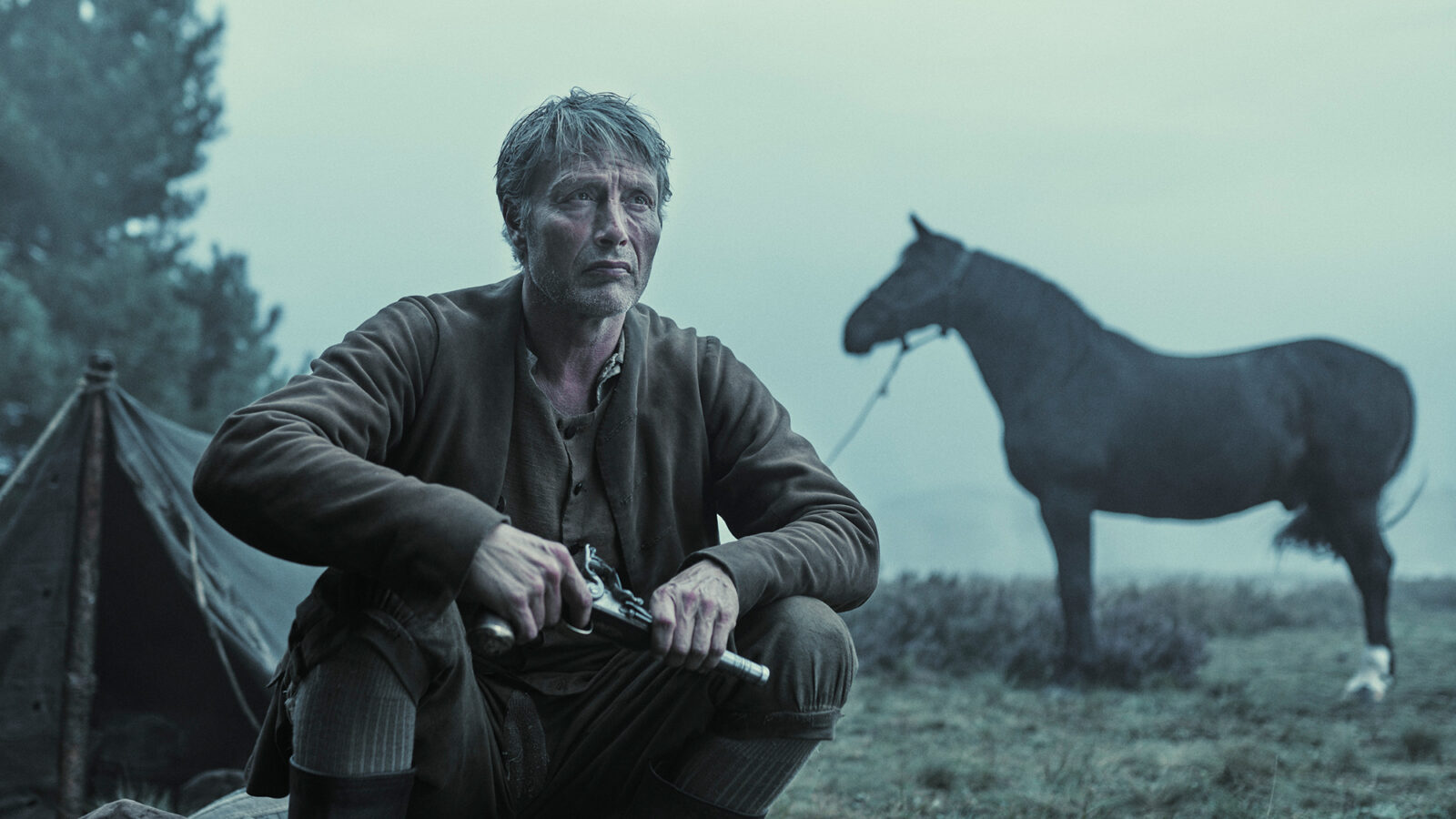The Promised Land Review

Denmark, 1755. Retired army captain Ludvig Kahlen (Mads Mikkelsen) is granted permission from the King to attempt a settlement on the Jutland moorland, famously barren and inhospitable, with the assumption that if he succeeds in his harvest, he will be granted a status of nobility. Ludvig immediately butts heads with the loathsome Frederik de Schinkel (Simon Bennebjerg), a local magistrate who claims that the land belongs to him, and the two engage in an increasingly brutal war over the territory.
Luckily, Ludvig has a motley crew to help him out. The Promised Land – the first collaboration between Mads Mikkelsen and writer/director Nikolaj Arcel since 2012’s Oscar-nominated A Royal Affair – excels in presenting us with a cast of characters that we care about very quickly. Or, in the case of Frederik, despise. It’s hard to recall a villain in recent cinema history quite so breathtakingly noxious as the putative nobleman, who readily admits that he added the ‘de’ to his last name to sound more fancy, and is happy to push his maids out the window to their deaths just to make a point. That pettiness and utter sadism is a potent mix, and Simon Bennebjerg does an excellent job at making him feel unnervingly human.

As Frederik’s opposite number, Ludvig is not an easy hero. Time and again, he opts to save his mission rather than his found family – the two runaway tenant farmers Ann Barbara and Johannes (Amanda Collin and Morten Hee Andersen) who he’s been hiding in exchange for their free labour; little Anmai Mus (Melina Hagberg), a runaway ‘Tater’ (Romani) girl who becomes like a surrogate daughter – refusing to save them from jeopardy if it means risking the health of his settlement. In Denmark, this film was released under the title ‘Bastarden’ (no prizes for translating that…) and we soon learn how much Ludvig’s single-mindedness springs from his self-consciousness over the circumstances of his birth. His desire for status is not all that far removed from Frederik’s desperation to hold on his own, and stops him from seeing how carelessly he’s neglecting those who love him just as he is.
Though that can make for some wildly frustrating moments, he does grow more of a spine as the action progresses, and the selfishness of his quest does make his character more interesting than if he was entirely noble throughout. Mikkelsen, stoic and regal, is typically excellent at shading Ludvig, making us root for him despite our frustrations. A male Mona Lisa, whenever a smile cracks through that stony visage, it feels like the first sun after a week of rainy days.
The Promised Land excels in marrying the small-scale human drama of the story with the huge swathe of land that the drama plays out upon. This is one to really catch in a cinema if you can; cinematographer Rasmus Videbæk captures the grandeur of the moor with an epic, magisterial eye, tracking it through weathers both bleak and glorious, underlining how it could get just so far under Ludvig’s skin.
Sweepingly cinematic and engrossingly intimate, The Promised Land is historical drama at its very best.
★★★★★
Icon Film Distribution presents The Promised Land in selected UK cinemas from 16 February


